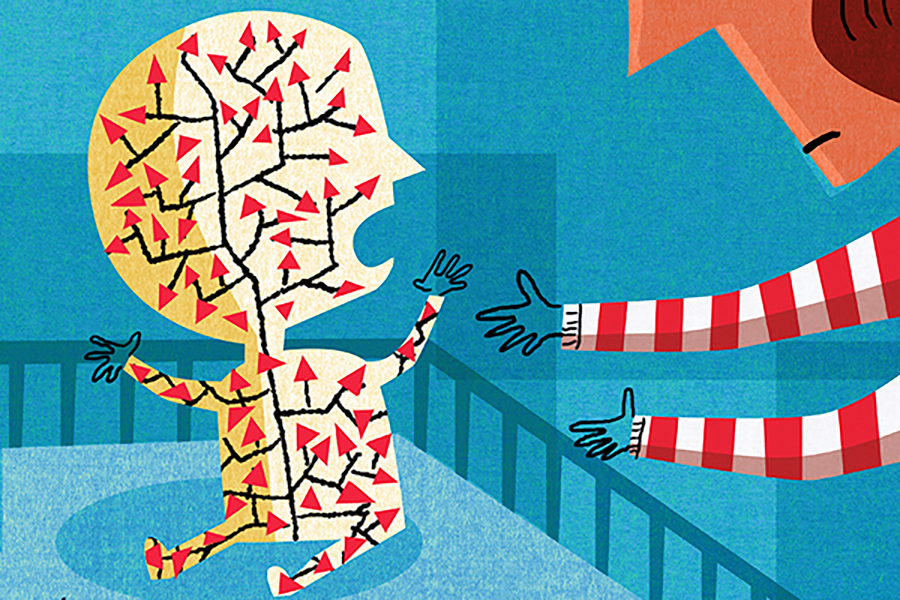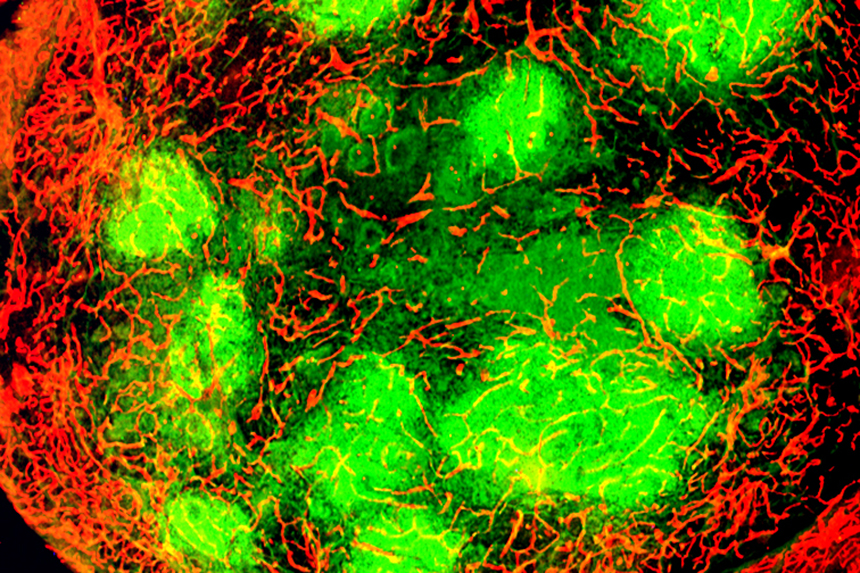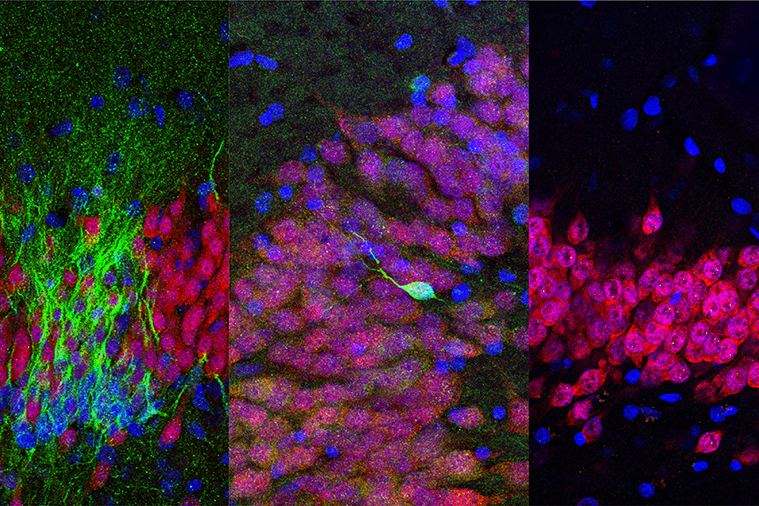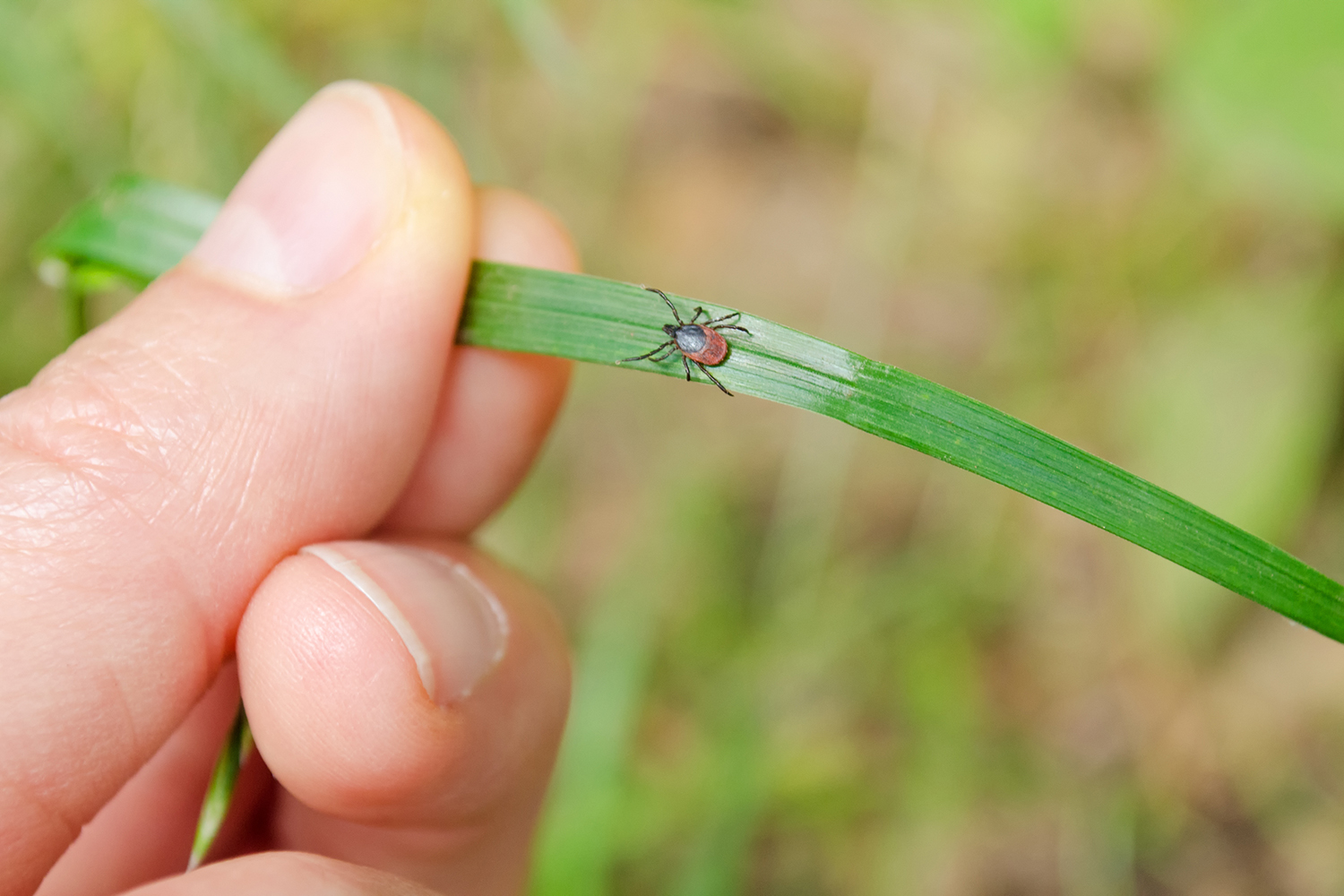Most Popular Science Stories of 2018
Trapping cancer cells with light, a groundbreaking in utero transplant, and the bold promise of genome surgery were among the science stories and videos that most engaged our readers in 2018.
Perhaps you missed these stories, videos and Q&A’s on health and science topics the first time, or maybe you are reviewing them again as the year draws to a close. Either way, enjoy the 11 most popular science stories from UC San Francisco from this year.
1) The Unbearable Sensation of Being: Living With Sensory Processing Disorder
For children with sensory processing disorder (SPD), ordinary sensory inputs – sounds, touches, or sights – can be excruciating. UCSF researcher Elysa Marco, MD, is among the researchers working to achieve better understanding and better therapeutic support for children with sensory-based challenges.

2) Researchers Invent Reversible 'Off-Switch' for Cellular Proteins
A new light-based tool developed by UCSF researchers allows real-time control of specific cellular proteins, such as the ones that regulate a cancer cell's migration. With the new tool, proteins can be precisely and reversibly turned off with blue light, opening the door to a vast number of applications in cell biology. Researchers even showed they could trap a migrating cancer cell by surrounding it in a virtual cage of light.
3) Why the Flu Season is So Bad This Year
The 2018 flu season started unusually early and was quickly recognized as being particularly severe. UCSF infectious disease specialist Charles Chiu, MD, PhD , explained why influenza was so widespread, how individuals could avoid catching it, and whether the vaccine was an effective prevention tool.

4) Adequate Consumption of ‘Longevity’ Vitamins Could Prolong Healthy Aging, Nutrition Scientist Says
A scientific review of a decade’s worth of nutritional research concluded most American diets are deficient in a key class of vitamins and minerals that help promote longevity and prevent chronic disease. The review, conducted by UCSF Benioff Children’s Hospital Oakland researcher Bruce Ames,

5) As the Keto Diet Gains Popularity, Scientists Explain What We Do and Don’t Know
The low-carbohydrate, high-fat ketogenic, or “keto,” diet has become widely popular in recent years, and UCSF physician-scientists have studied both the diet’s effectiveness and its safety. Ethan Weiss, MD, and Raymond Swanson, MD, explain what we do and don’t yet know about different aspects of the keto diet, including how it affects inflammation and lifespan.

6) Baby Born in World’s First In Utero Stem Cell Transplant Trial
With advances in understanding the fetal immune system, UCSF researchers were able to safely transplant a mother’s blood stem cells into her growing fetus, leading to the live birth of a baby with alpha thalassemia, an often fatal fetal condition. The infant, born at UCSF Medical Center Mission Bay in February 2018, is the first patient in the world’s first clinical trial using blood stem cells transplanted prior to birth.
7) The First Genome Surgeons: Scientists Are Preparing to Bring DNA-Editing Tools to the Clinic
UCSF physician-scientists are at the forefront of using a cutting-edge DNA-editing tool called CRISPR to conduct genome surgeries. When dispatched into living cells, CRISPR systems have the power to remove and replace faulty genes. Doctors are hopeful this approach will soon make it possible to treat an array of genetic diseases at their source.
8) Cancer-Killing Virus Acts by Alerting Immune System
A UCSF study examined how oncolytic, or cancer-killing, viruses attack tumors, offering surprising insights about how a viral infection can cooperate with the immune system to fight cancer cells. These viruses have the potential to function as a cancer vaccine, alerting the immune system to the presence of a tumor and triggering a powerful, widespread immune response.

9) Birth of New Neurons in the Human Hippocampus Ends in Childhood
The production of new neurons in the hippocampus – a brain region essential for learning and memory – begins to significantly slow down during childhood. By adulthood, new neuron production is undetectable, according to a UCSF study that casts doubt on the existence of adult neurogenesis. The finding opens the door to further research about how the human brain learns and adapts without a steady supply of new nerve cells.

10) Lyme Disease is On the Rise – An Expert Explains Why
Cases of the tick-borne illness Lyme disease are on the rise, with upwards of 350,000 annual cases occurring nationwide in recent years, and many cases left undiagnosed. UCSF infectious disease expert Charles Chiu, MD, PhD, weighed in on what’s causing the increased prevalence, how Lyme is transmitted, and how to ensure it’s diagnosed and treated in a timely manner.

11) A New Spinal Cord Injury Treatment is Getting Patients Back on Their Feet
A new treatment approach for severe spinal cord injuries offers patients renewed hope. Doctors at Zuckerberg San Francisco General Hospital developed the revised protocol, which combines improved evaluation procedures, quick action and more personalized treatments. By using spinal blood pressure readings to ensure an accurate diagnosis and conducting surgeries as soon as possible, patients are making fuller and faster recoveries.